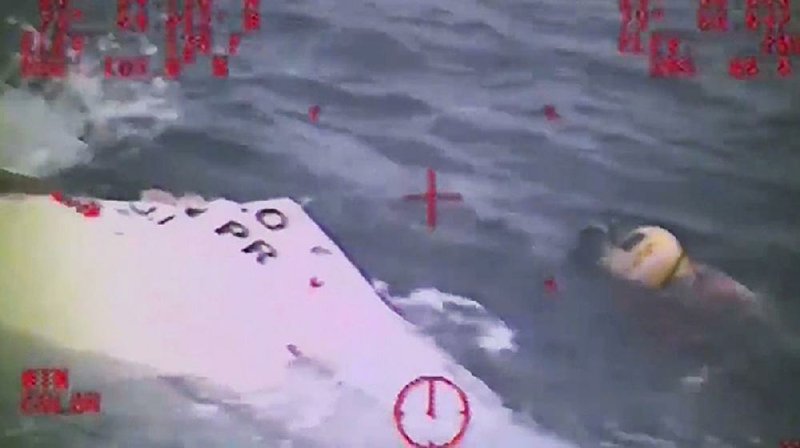JACKSONVILLE, Fla. -- Five Polish workers whose job was to prepare the engine room for a retrofitting were on board the 790-foot El Faro when it set out on the voyage that took it into the path of Hurricane Joaquin.
Investigators are now trying to determine whether that work could have caused a loss of power that led to the U.S. container ship's sinking.
The vessel's owners say they don't believe so, but the question -- along with the captain's decision to plot a course near the storm -- will almost certainly be part of an inquiry begun Tuesday by the National Transportation Safety Board into the disaster near the Bahamas. A search is underway for any trace of the 33 people on board. One body has been found in a survival suit.
"We don't have all the answers; I'm sorry for that. I wish we did," Anthony Chiarello, president and CEO of ship owner Tote Inc., told reporters. "But we will find out what happened."
The 41-year-old El Faro was to be retired from Caribbean duty and retrofitted in the coming months for service between the West Coast and Alaska, said Phil Greene, another Tote executive.
The El Faro and its equally aged sister vessel were being replaced on the Jacksonville-to-Puerto Rico run by two brand-new ships capable of carrying much more cargo and emitting less pollution.
When the El Faro left Jacksonville on Sept. 29, the five Polish workers went along with 28 U.S. crew members to do some preparatory work in the engine room, according to Greene. He gave no details on the nature of their work.
But "I don't believe based on the work they were doing that they would have had anything to do with what affected the propulsion," said Greene, a retired Navy admiral.
The safety agency dispatched a team from Washington to investigate.
"It's just a tragic, tragic situation," said Bella Dinh-Zarr, the agency's vice chairman.
The El Faro had no history of engine failure, Greene said, and the company said the vessel was modernized in 1992 and 2006. Company records show it underwent its last annual Coast Guard inspection in March.
The American Bureau of Shipping, a nonprofit organization that sets safety and other standards for ships, did full hull and machinery inspections in February with no red flags, the company said.
F. John Nicoll, a retired captain who spent years piloting the run to Puerto Rico, said he doubts the age of the El Faro was a factor, noting that there are many older ships plying U.S. waters without incident.
He predicted the National Transportation Safety Board will look into whether company pressure to deliver the cargo on time despite the menacing weather played a role in the tragedy -- something Tote executives have denied.
"Time and money are an important thing" in the shipping industry, Nicoll said. He said there should be emails and other messages between the captain and the company to help answer the question.
The Coast Guard, meanwhile, continued searching by sea and air for any sign of survivors. The ship is believed to have gone down in 15,000 feet of water after reporting its last known position Thursday.
Tote executives said the captain, Michael Davidson, planned a heading that would have led the El Faro to bypass Joaquin if the ship hadn't lost power. A power loss could have left it vulnerable to the storm's 140 mph winds and battering waves of more than 50 feet.
They said Davidson was in regular communication before the storm with the company, which can override a captain's decisions.
Davidson attended the Maine Maritime Academy and has a home in Windham, Maine.
"He was a very squared-away sailor, very meticulous with details, very prudent, which is important when you're working on the water. He took his job seriously," said Nick Mavadones, a friend since childhood and general manager of Casco Bay Lines, where he and Davidson worked together.
Information for this report was contributed by Tony Winton and Connie Cass of The Associated Press.
A Section on 10/07/2015

